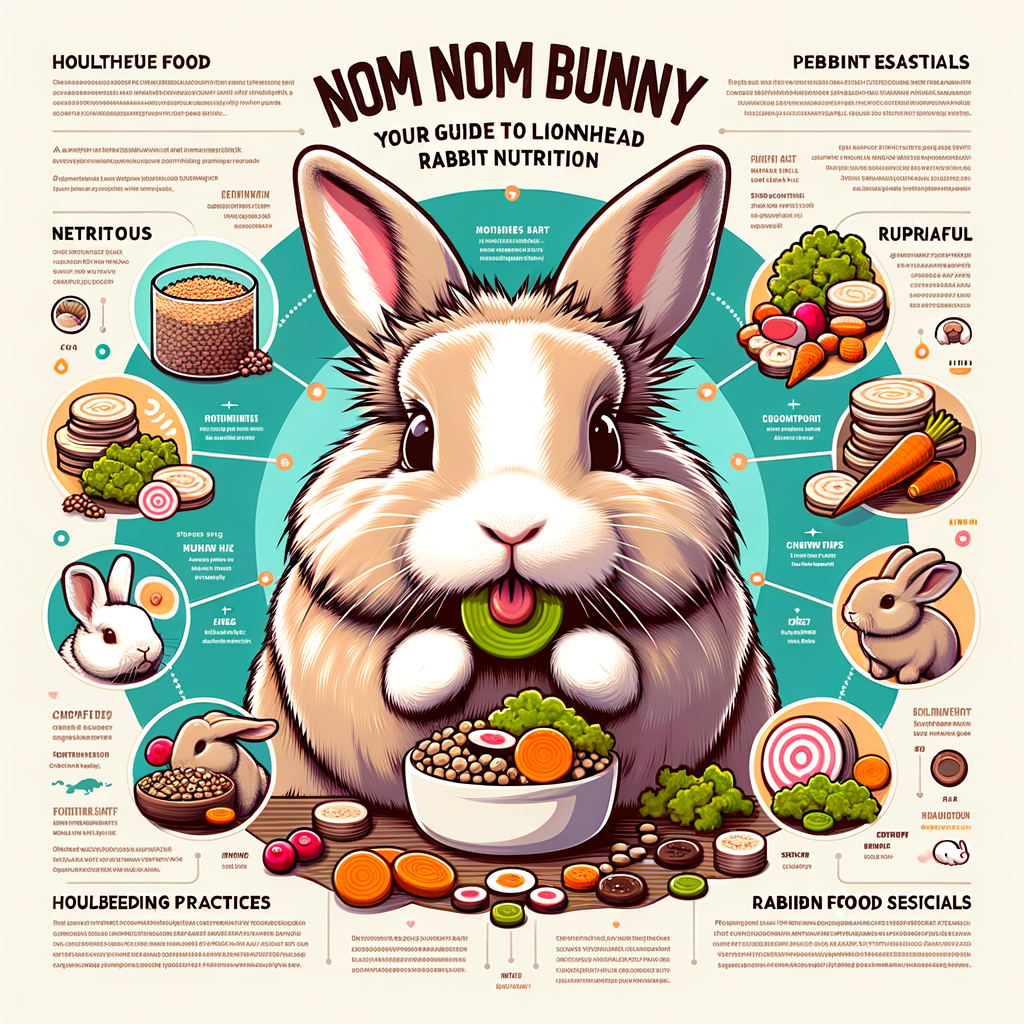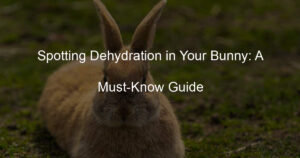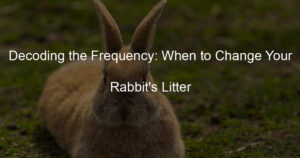
Introduction to Lionhead Rabbit Diet
When it comes to keeping your Lionhead rabbit healthy and happy, a proper diet is crucial. In this article, we’ll explore the importance of a balanced diet for your furry friend and debunk some common misconceptions about rabbit food.
- Understanding the Importance of a Balanced Diet
Just like humans, rabbits need a balanced diet to stay healthy. A balanced diet for a Lionhead rabbit includes a variety of foods like hay, vegetables, fruits, and a small amount of pellets. This mix provides the necessary nutrients that your rabbit needs to thrive.
Hay, for instance, is essential for a rabbit’s diet. It helps keep their teeth in check and provides the fiber they need for a healthy digestive system. Fresh vegetables and fruits offer vitamins and minerals, while pellets provide extra nutrients.
Without a balanced diet, your Lionhead rabbit may face health issues such as obesity, dental problems, and digestive disorders. Therefore, understanding the importance of a balanced diet is the first step towards ensuring your rabbit’s health and longevity.
- Common Misconceptions about Rabbit Food
There are many misconceptions about what rabbits should eat. One common myth is that rabbits only eat carrots. While carrots can be a part of a rabbit’s diet, they should not be the main food source. Carrots are high in sugar and should only be given as a treat.
Another misconception is that rabbits can eat any type of vegetables or fruits. However, some foods like iceberg lettuce and avocado can be harmful to rabbits. It’s essential to research and consult with a vet before introducing new foods into your rabbit’s diet.
Lastly, many people believe that rabbits don’t need to drink water if they eat fresh vegetables. This is not true. Rabbits need a constant supply of fresh water, regardless of their diet.
In conclusion, understanding your Lionhead rabbit’s dietary needs and debunking common misconceptions about rabbit food are key to ensuring your pet’s health and happiness. Stay tuned for more detailed guides on feeding Lionhead rabbits, supplements and treats, and avoiding common feeding mistakes.
Bunny Nutrition Basics
Understanding the nutritional needs of your rabbit is crucial for their health and longevity. In this section, we will delve into the basics of rabbit food and the importance of fiber in their diet.
Rabbit Food Basics
Feeding your rabbit a balanced diet is essential for their overall health. Let’s take a closer look at some of the fundamental aspects of rabbit nutrition.
- Understanding the nutritional needs of a rabbit
- Importance of fiber in a rabbit’s diet
Rabbits have unique dietary requirements that differ significantly from other pets. They are herbivores and their diet should primarily consist of hay, fresh vegetables, and a small portion of pellets. Hay should make up about 70% of their diet as it aids digestion and helps wear down their constantly growing teeth. Fresh vegetables provide essential vitamins and minerals, while pellets contribute to a balanced diet.
Fiber is a crucial component of a rabbit’s diet. It aids in digestion, helps maintain a healthy weight, and prevents gastrointestinal problems. A high-fiber diet also ensures that your rabbit’s teeth are kept at an appropriate length, as the process of chewing fiber-rich food helps wear down their teeth. A rabbit’s diet should consist of at least 20% fiber.
In summary, a rabbit’s diet should be high in fiber and consist mainly of hay, supplemented with fresh vegetables and a small amount of pellets. Understanding these basics will go a long way in ensuring your rabbit’s health and happiness.
Healthy Rabbit Feeding
Feeding your rabbit a healthy diet is essential for their well-being. Let’s discuss two key components: proper portion sizes and the role of water in rabbit nutrition.
- Proper portion sizes for a balanced diet
- The role of water in rabbit nutrition
Just like humans, rabbits also need a balanced diet to stay healthy. But what does a balanced diet for a rabbit look like? A rabbit’s diet should consist of 80% hay, 10% fresh vegetables, 5% pellets, and 5% treats. This balance is crucial to ensure they get all the necessary nutrients.
When it comes to portion sizes, a good rule of thumb is to provide a pile of hay that’s about the size of your rabbit. For fresh vegetables, a handful per 2 lbs of body weight is a good measure. As for pellets, a quarter cup per 6 lbs of body weight is sufficient. And remember, treats should be given sparingly!
Water plays a vital role in a rabbit’s nutrition. It aids in digestion and helps keep their body temperature regulated. A rabbit should always have access to fresh, clean water. On average, a rabbit will drink approximately 50-100 ml of water per kg of body weight each day. This amount can vary depending on their diet and the temperature of their environment.
It’s important to note that if a rabbit is eating plenty of fresh, moist vegetables, they might drink less water than a rabbit on a dry diet. Regardless, always ensure your rabbit has access to water and monitor their intake to ensure they are staying hydrated.
| Food Type | Portion Size |
|---|---|
| Hay | Size of your rabbit |
| Fresh Vegetables | A handful per 2 lbs of body weight |
| Pellets | A quarter cup per 6 lbs of body weight |
| Treats | Sparingly |
Remember, a healthy diet is key to a happy and healthy rabbit. Always monitor your rabbit’s eating habits and adjust their diet as necessary to ensure they are getting the proper nutrition.
Feeding Lionhead Rabbits: A Detailed Guide
Feeding your Lionhead rabbit correctly is crucial to its health and well-being. This guide will provide you with detailed information on what Lionhead rabbits eat and how to ensure they get a balanced diet.
Nom Nom Bunny: What Do Lionhead Rabbits Eat?
Lionhead rabbits, like all rabbits, are herbivores. This means they eat a diet primarily made up of plants. Let’s delve into the specifics of their diet.
- Preferred vegetables and fruits
- Safe and unsafe foods for Lionhead rabbits
Lionhead rabbits love a variety of vegetables and fruits. Some of their favorites include carrots, broccoli, bell peppers, and apples. However, fruits should be given in moderation due to their high sugar content. A good rule of thumb is to feed your rabbit a portion of fruit that’s about the size of its head once or twice a week.
While Lionhead rabbits can eat many types of fruits and vegetables, there are some that are unsafe for them. Unsafe foods include onions, garlic, potatoes, and rhubarb. These foods can cause serious health problems for your rabbit. Always research a food before giving it to your rabbit to ensure it’s safe.
Remember, the key to a healthy diet for your Lionhead rabbit is variety. Providing a mix of safe fruits and vegetables will ensure your rabbit gets a range of nutrients and enjoys its meals.
Lionhead Bunny Care: Feeding Schedule
Feeding your Lionhead rabbit correctly is crucial to their health and happiness. Let’s dive into the specifics of how often and what to feed them at different stages of their life.
- How often should you feed your Lionhead rabbit?
- Feeding schedule for baby, adolescent, and adult rabbits
Feeding frequency depends on the age and health of your Lionhead rabbit. Generally, adult rabbits should be fed twice a day, once in the morning and once in the evening. However, always ensure there is a constant supply of hay available for your rabbit, as it aids in digestion and dental health.
Feeding schedules vary with the age of your rabbit. Here’s a simple guide:
| Age | Feeding Schedule |
|---|---|
| Baby Rabbits (up to 7 weeks) | Mother’s milk and alfalfa hay |
| Adolescent Rabbits (7 weeks to 7 months) | Gradual introduction of vegetables and pellets along with unlimited alfalfa hay |
| Adult Rabbits (7 months and older) | Timothy hay, small amount of pellets, and a variety of vegetables |
Remember, each rabbit is unique and may have specific dietary needs. Always consult with a vet if you’re unsure about your rabbit’s feeding schedule.
Feeding your Lionhead rabbit a balanced diet and sticking to a regular feeding schedule can ensure they stay healthy and happy. Remember, a well-fed rabbit is a happy rabbit!
Rabbit Nutrition Guide: Supplements and Treats
In this section, we will delve into the world of dietary supplements and treats for your Lionhead rabbit. We will discuss when and why to use dietary supplements and how to choose the right ones. Let’s begin!
Lionhead Rabbit Food: Supplements
Supplements can be an essential part of your rabbit’s diet, especially if they have specific nutritional needs that are not being met by their regular diet.
- When and why to use dietary supplements
- Choosing the right supplements for your rabbit
Supplements should be used when your rabbit’s diet lacks certain nutrients. For instance, if your rabbit is not eating enough hay, they might need a fiber supplement. If your rabbit is older or has a health condition, they might need additional vitamins or minerals. Always consult with your vet before starting any new supplement regimen.
Choosing the right supplement for your rabbit depends on their specific needs. A rabbit with a low appetite might benefit from a high-calorie supplement, while a rabbit with digestive issues might need a probiotic. It’s essential to choose a supplement that is specifically designed for rabbits, as they have unique nutritional needs. Always read the label and consult with your vet if you have any questions.
Remember, supplements should not replace a balanced diet but should be used to enhance it. Your rabbit’s primary diet should consist of hay, fresh vegetables, and a small amount of pellets. Supplements can help fill in any nutritional gaps.
Now that we’ve covered supplements, let’s move on to treats!
Proper Rabbit Feeding: Treats
Feeding your rabbit treats is a great way to bond with them and provide them with a varied diet. However, it’s important to choose the right treats and give them in moderation. Let’s explore some healthy treat options and how often you should give your rabbit treats.
- Healthy treat options for your rabbit
- Fresh fruits: Apples, bananas, and strawberries are all good choices. However, remember to remove any seeds or pits, as these can be harmful to your rabbit.
- Vegetables: Carrots, bell peppers, and cucumbers can make for a tasty treat. Just make sure to wash them thoroughly before feeding.
- Herbs: Fresh herbs like parsley, basil, and mint can be a delightful treat for your rabbit. They not only provide a different taste but also have various health benefits.
- How often should you give your rabbit treats?
When it comes to treats, not all options are created equal. Some treats are healthier than others. Here are some healthy treat options for your rabbit:
Remember, treats should make up only a small part of your rabbit’s diet. The majority of their diet should consist of hay, fresh water, and a small amount of pellets.
While treats can be a fun addition to your rabbit’s diet, it’s important not to overdo it. Too many treats can lead to obesity and other health problems. As a general rule, treats should make up no more than 10% of your rabbit’s diet. This means if you feed your rabbit a cup of food a day, no more than a tenth of a cup should be treats.
It’s also a good idea to vary the types of treats you give your rabbit. This can help prevent them from becoming picky eaters and ensure they get a range of nutrients.
In conclusion, treats can be a great way to add variety to your rabbit’s diet and bond with them. Just remember to choose healthy options and feed them in moderation. Your rabbit’s health and happiness depend on it!
Bunny Diet Essentials: Avoiding Common Feeding Mistakes
When it comes to feeding your bunny, it’s essential to avoid common mistakes that can harm their health. This section will discuss two significant errors: overfeeding and underfeeding, and feeding harmful foods.
Rabbit Care and Nutrition: Common Mistakes
Let’s delve into these common mistakes to ensure your bunny gets the best nutrition possible.
- Overfeeding and underfeeding: Finding the balance
- Commonly fed foods that are actually harmful
Feeding your bunny too much or too little can lead to health problems. Overfeeding can cause obesity, while underfeeding can lead to malnutrition. It’s crucial to find a balance.
According to the Rabbit Welfare Association, an adult rabbit’s diet should consist of 85% hay, 10% fresh vegetables and herbs, and only 5% pellets. This balanced diet ensures your bunny gets the nutrients they need without overeating.
Remember, every bunny is unique. Factors like age, size, and activity level can affect how much food your bunny needs. It’s always best to consult with a vet to determine the right amount of food for your bunny.
Some foods that people commonly feed their bunnies can actually be harmful. These include lettuce, potatoes, and some types of fruits.
Lettuce, especially iceberg lettuce, can cause digestive problems in rabbits. Potatoes are high in starch, which is hard for bunnies to digest. And while fruits are often seen as a healthy treat, they can be high in sugar and should only be given in moderation.
It’s also important to avoid feeding your bunny foods that are high in fat or sugar, like chocolate or candy. These can cause serious health problems, including obesity and dental disease.
In conclusion, feeding your bunny a balanced diet and avoiding harmful foods are key to their health. Always consult with a vet if you’re unsure about what to feed your bunny.
Conclusion: Ensuring Your Lionhead Rabbit’s Health Through Proper Nutrition
As we reach the end of our comprehensive guide on Lionhead Rabbit nutrition, let’s take a moment to recap the key points and reflect on the importance of proper nutrition for your furry friend’s overall health.
- Recap of key points:
- Final thoughts on the importance of proper nutrition:
Understanding the dietary needs of your Lionhead Rabbit is crucial. A balanced diet primarily consists of hay, fresh vegetables, and a small portion of pellets. Supplements and treats can be included, but they should not make up a significant part of the diet. Avoiding common feeding mistakes, such as overfeeding or providing the wrong types of food, is essential to prevent health issues.
Proper nutrition is not just about feeding your rabbit. It’s about providing a balanced diet that promotes good health, longevity, and quality of life. A well-fed Lionhead Rabbit is a happy and active one, and seeing them thrive is one of the greatest rewards for a pet owner. Remember, every rabbit is unique, and what works for one may not work for another. Always monitor your rabbit’s health and adjust their diet as needed, consulting with a vet when necessary.
In conclusion, the health and well-being of your Lionhead Rabbit largely depend on the nutrition you provide. By following the guidelines outlined in this post, you can ensure your rabbit enjoys a healthy, balanced diet that caters to their specific needs. Happy feeding!




